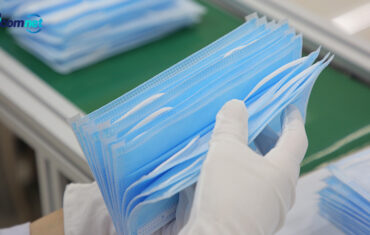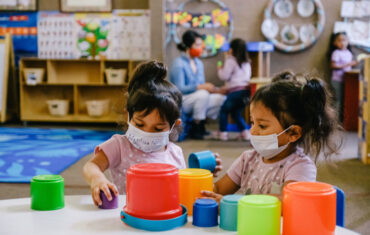In the midst of dealing with the coronavirus pandemic, we’ve all wondered about the best ways to keep ourselves healthy. One viewer asked about sanitizer and its effectiveness. The Food and Drug Administration has recently updated what ingredients are allowed in hand sanitizer, so really harmful substances, such as triclosan, should no longer be in them. Still, the average consumer may want to think twice about hand sanitizer. Here are some situations where you might be overusing the products.
You have access to soap and water
You don’t need to use hand sanitizer to stay germ-free. According to the CDC, the best way to get rid of germs is by proper hand-washing, which physically removes the bugs and washes them down the drain. “Soap and water is always a great way to clean your hands,” says Graham Snyder, MD, medical director of infection prevention at UPMC.
Your hands are visibly dirty
“Alcohol-based hand sanitizers do not remove dirt, and are less effective at killing bacteria and viruses when hands are soiled,” Graham Snyder, MD, medical director of infection prevention at UPMC. “It’s important to use soap and water if your hands need to be cleaned of dirt.” So after participating in sports, gardening, or playing outside, avoid the hand sanitizer.
You’ve been handling chemicals
The CDC also notes that hand sanitizers are probably not very effective at getting rid of contaminants from harmful chemicals. Although more research is needed, if you’re handling hazardous materials, don’t rely on hand sanitizer. Wash your hands thoroughly afterward.
When someone sneezes next to you
If you’re at the office or on the train and a sick person is coughing and sneezing close to you, your first instinct might be to reach for the hand sanitizer. But, chances are you’ll catch their infection through the air droplets you’re breathing in, not the germs on your hands. To better prevent the flu, be sure to get a yearly flu shot.
You haven’t touched anyone or anything else
You might be putting on hand sanitizer without even thinking about what you did or didn’t touch; it’s just habit. But, this overuse could actually create resistant bacteria, according to a recent study. So the more we use hand sanitizer routinely, the greater the likelihood germs may become tolerant of the alcohol. Reserve using the stuff for when it’s really necessary.
You just sanitized five minutes ago
The more you use hand sanitizers, the more your skin won’t like it. If you’re going to use hand sanitizer, instead of constantly reapplying, do it once properly right after contamination occurs. The CDC says to rub over all surfaces of both hands until your hands are dry, about 20 seconds. Plus, make sure you don’t wipe it off.
You’ve touched raw meat
It should go without saying that before and after you prepare food, wash your hands. Raw meat and fish can make hands greasy, which the CDC notes will cause hand sanitizers not to work as well. So after preparing food or after going fishing, use soap and water instead.
You’re around children
Hand sanitizer is often not in a child-proof container. From 2011 to 2015 U.S. poison control centers received almost 85,000 calls about hand sanitizer exposures in children. Hand sanitizer-lovers should be aware of the risks involved in keeping it easily accessible in purses, cars, and around the house.






